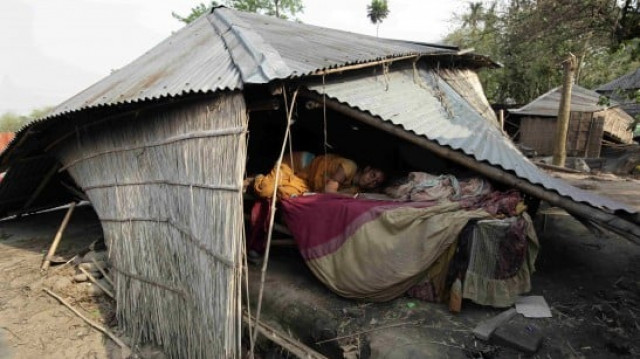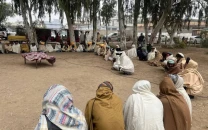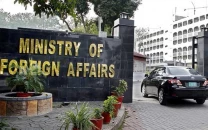Mud huts and evictions: ‘Residential security is having housing, not land’
Housing for the poor first, development later, say speakers.

Have you ever wondered why people build mud houses instead of permanent ones in the rural areas? One of the main reasons is that they fear being evicted. At any time, a landlord can kick them out and they would have to rebuild all over again.
“A majority of our agriculture-related population does not own land. They live on the piece of land provided by the landowner who has discretionary powers to evict them on a whim,” explained Prof. Dr Pervez Pathan, who was presenting at a seminar on ‘Residential Land Rights in Sindh’ organised by the Institute for Social Movement and Oxfam GB on Thursday. “Residential security is seen as access to land rather than housing.”
Pathan, who is the director of the Sindh Development Studies Centre at the University of Sindh, Jamshoro, explained that tribes, castes, ethnic and religious identities also stop people from acquiring land for housing.
Residential land is defined as an area predominantly used for housing. Residential rights, on the other hand, suggest the right of a dweller to the land they occupy for accommodation. Then why is it, asked Dr Pathan, that “housing policies and laws are not explicitly based on the human rights provisions in the Constitution”. Laws should define what the standards are of adequate housing, basic services and social security. The government should make it illegal to forcefully evict someone.
Oxfam GB’s Fatima Naqvi pointed out that civil society has time until the next general elections to press political parties to pursue this agenda and mobilise popular support.
According to the Constitution, housing should be provided to all citizens, including those “who are unable to earn a livelihood”.
Activist Zulfiqar Halepoto noted that the issue is as relevant to urban areas as it is to rural ones. “A few years ago, when we were fighting against the Left Bank Outfall Drainage (LBOD) project in rural Sindh, there was a protest movement against the Lyari Expressway in Karachi as people feared losing their houses.”
Halepoto maintained that during the past six to eight years, scores of villages that had inhabited Karachi for centuries were pulled down to construct plazas. “No one is against development but it should not be at the expense of making people homeless.” He believes that unlike Hyderabad, Karachi cannot expand horizontally.
Talking about the minority rights, advocate M Prakash said that Hindus, especially those belonging to the lower stratum of society, are the biggest sufferers. “Most of the gypsies are Bheels, Kolhis and Menghwadhs,” he said referring to landless Hindus.
Zulfiqar Shah of the Institute of Social Movement announced that his organisation in collaboration with other groups would lead a march to the Sindh Assembly in June to press for housing rights of the indigenous people of Sindh.
Published in The Express Tribune, May 27th, 2011.






1675249047-0/image-(18)1675249047-0-208x130.webp)












COMMENTS
Comments are moderated and generally will be posted if they are on-topic and not abusive.
For more information, please see our Comments FAQ